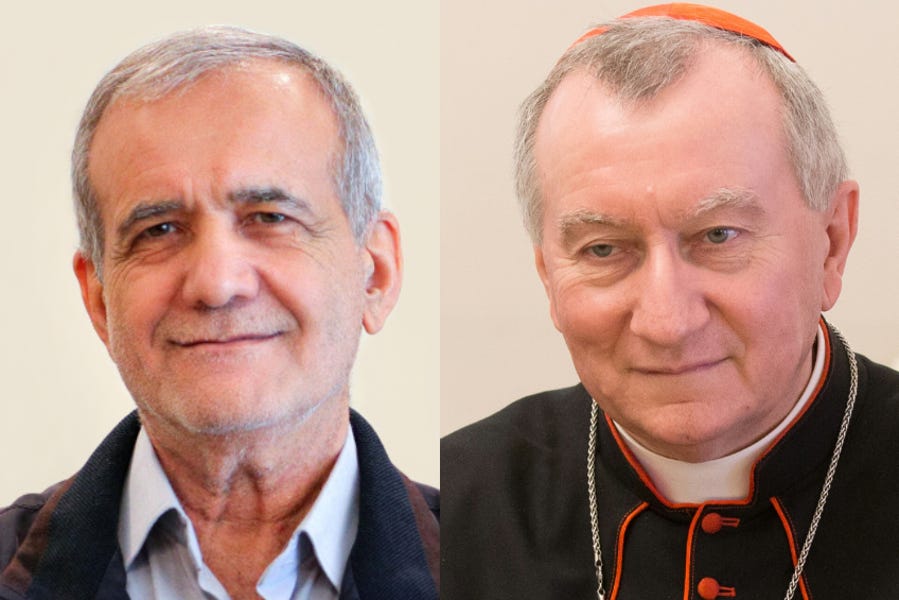Why the Vatican keeps an open line to Iran
Cardinal Parolin’s call with President Pezeshkian comes amid expectations Iran could soon launch an attack on Israel - how far back do Vatican relations go with the Islamic republic?
Error
The Vatican’s top diplomat cautioned against actions that would escalate conflict in the Middle East in a Monday morning phone call with Iran’s new president.

Cardinal Pietro Parolin’s Au…
